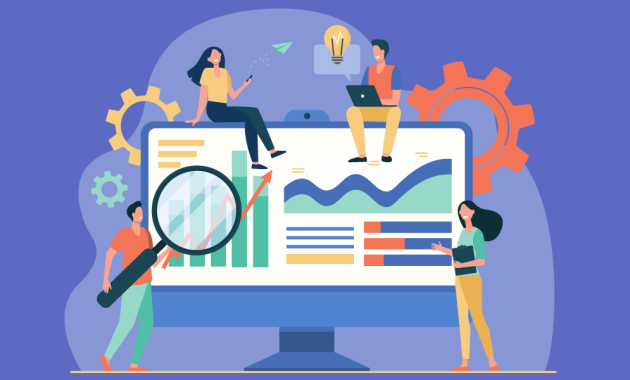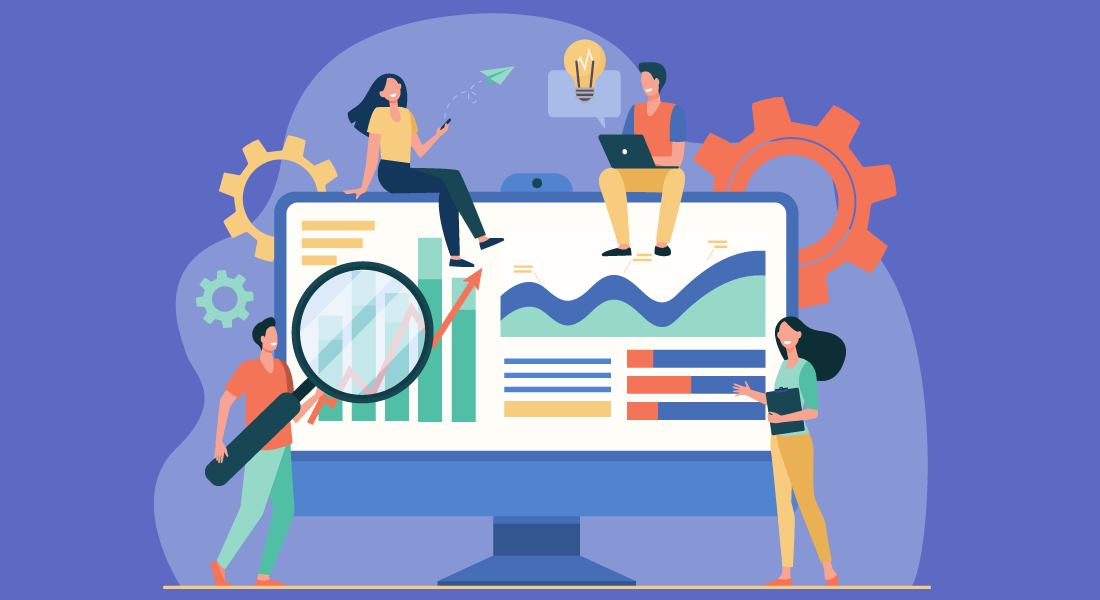
Why 21 Business Intelligence Tools You Need to Know
In today’s data-driven world, businesses are drowning in information. The challenge isn’t a lack of data; it’s the ability to extract meaningful insights from it. That’s where business intelligence (BI) tools come in. These tools transform raw data into actionable intelligence, empowering organizations to make better decisions, improve efficiency, and gain a competitive edge. This article delves into 21 essential business intelligence tools that every organization should consider.
The proliferation of data has made business intelligence more critical than ever. Companies are constantly generating vast amounts of information from various sources. These sources include sales transactions, customer interactions, marketing campaigns, and operational processes. Without the right tools, this data remains untapped, representing a missed opportunity for growth and optimization. The right business intelligence tools can unlock this potential.
This guide will explore a diverse range of business intelligence tools. We’ll cover tools for data visualization, data warehousing, reporting, and advanced analytics. The goal is to provide a comprehensive overview to help you choose the best tools for your specific needs.
Understanding the Core of Business Intelligence
Before diving into specific tools, it’s important to understand the core functions of business intelligence. BI involves collecting, processing, analyzing, and presenting data. The aim is to support informed decision-making. This process typically involves the following key steps:
- Data Collection: Gathering data from various sources.
- Data Storage: Storing data in a central repository.
- Data Processing: Cleaning and transforming data.
- Data Analysis: Applying analytical techniques to uncover insights.
- Data Visualization: Presenting insights in an easy-to-understand format.
The tools we’ll explore below help with each of these steps, streamlining the process and making it more efficient. Investing in the right business intelligence tools is crucial for any organization. It ensures they can leverage data effectively.
Data Visualization and Reporting Tools
Data visualization tools transform complex data into visually appealing and understandable formats. These tools make it easier to identify trends, patterns, and outliers. Reporting tools focus on generating structured reports. These reports summarize data for specific time periods or business functions. Here are some key tools in this category:
Tableau
Tableau is a leading data visualization tool. It’s known for its intuitive interface and powerful capabilities. Tableau allows users to create interactive dashboards. These dashboards can display data from various sources. Its drag-and-drop functionality simplifies data analysis, making it accessible to users of all skill levels. Tableau is a popular choice for many businesses.
Power BI
Microsoft Power BI is a versatile business intelligence platform. It integrates seamlessly with other Microsoft products. Power BI offers robust data visualization and reporting features. It also provides advanced analytics capabilities. Power BI’s ease of use and affordability make it a great choice. Power BI is especially beneficial for organizations already invested in the Microsoft ecosystem.
Qlik Sense
Qlik Sense is a self-service BI platform. It utilizes an associative data model. This model allows users to explore data in a flexible and intuitive manner. Qlik Sense is known for its data discovery capabilities. It allows users to uncover hidden relationships within their data. It is a great option for businesses with complex data needs.
Looker (Google Cloud)
Looker, now part of Google Cloud, is a data analytics platform. It focuses on providing a single source of truth for data. Looker uses a semantic layer to define data consistently across the organization. It is a powerful tool for creating complex data models. Looker is ideal for organizations that prioritize data governance.
Sisense
Sisense is a BI platform designed for complex data environments. It allows users to analyze large datasets. Sisense offers in-memory processing. This allows for fast query performance. Sisense is suitable for businesses with demanding analytical needs.
Data Warehousing Tools
Data warehousing tools are designed to store and manage large volumes of data. They provide a central repository for all of an organization’s data. This makes it easier to perform analysis and generate reports. Here are some essential data warehousing tools:
Amazon Redshift
Amazon Redshift is a fully managed data warehouse service. It is offered by Amazon Web Services (AWS). Redshift is designed for fast and efficient data analysis. It supports petabyte-scale data warehouses. Redshift offers a cost-effective solution for data storage and analysis. Redshift is a popular choice for companies using AWS.
Google BigQuery
Google BigQuery is a serverless data warehouse. It is part of the Google Cloud Platform. BigQuery allows users to analyze large datasets. It does this without needing to manage infrastructure. BigQuery is known for its scalability and ease of use. It’s a great option for organizations that want a cloud-based data warehouse. BigQuery helps with business intelligence.
Snowflake
Snowflake is a cloud-based data warehouse. It offers a flexible and scalable solution for data storage and analysis. Snowflake supports various data formats and integration with other tools. It is known for its ease of use and performance. Snowflake is a versatile choice for many organizations.
Microsoft Azure Synapse Analytics
Microsoft Azure Synapse Analytics is a unified analytics service. It combines data warehousing and big data analytics. It offers a comprehensive platform for data storage, processing, and analysis. Azure Synapse Analytics integrates seamlessly with other Azure services. It is a good choice for organizations invested in the Microsoft Azure ecosystem.
Advanced Analytics and Data Science Tools
Advanced analytics tools go beyond basic reporting and visualization. They provide capabilities for predictive analytics, machine learning, and statistical analysis. These tools help organizations gain deeper insights. They also help forecast future trends. Here are some key tools in this category:
Python (with Libraries like Pandas, NumPy, Scikit-learn)
Python is a versatile programming language. It is widely used for data science and analytics. Python offers a rich ecosystem of libraries. These libraries include Pandas, NumPy, and Scikit-learn. Python is used for data manipulation, analysis, and machine learning. It is a powerful tool for advanced analytics.
R
R is another programming language. It is specifically designed for statistical computing and graphics. R is used for data analysis, modeling, and visualization. It offers a wide range of statistical packages. R is a favorite among statisticians and data scientists.
Apache Spark
Apache Spark is a fast and general-purpose cluster computing system. It is used for big data processing and analytics. Spark can process large datasets in real-time. It supports various programming languages. Spark is a powerful tool for handling big data workloads.
SAS
SAS is a comprehensive analytics platform. It offers a wide range of tools for data management, statistical analysis, and reporting. SAS is widely used in various industries. SAS is known for its reliability and advanced analytical capabilities.
KNIME
KNIME is an open-source data analytics platform. It uses a visual workflow approach. KNIME allows users to build data pipelines without coding. It is a user-friendly tool for data analysis and machine learning. KNIME is suitable for both beginners and experienced analysts.
ETL (Extract, Transform, Load) Tools
ETL tools are used to extract data from various sources. They transform the data into a usable format. They then load the transformed data into a data warehouse or data lake. ETL tools streamline the data integration process. They are essential for any BI implementation. Here are some key ETL tools:
Informatica PowerCenter
Informatica PowerCenter is a leading ETL tool. It provides a comprehensive solution for data integration and management. PowerCenter supports various data sources and targets. It is known for its scalability and performance. PowerCenter is a popular choice for large enterprises.
Talend
Talend is an open-source data integration platform. It offers a wide range of ETL capabilities. Talend supports various data sources and targets. It is known for its ease of use and affordability. Talend is a good option for businesses of all sizes.
Microsoft SQL Server Integration Services (SSIS)
Microsoft SQL Server Integration Services (SSIS) is an ETL tool. It is part of the Microsoft SQL Server suite. SSIS provides a comprehensive solution for data integration. It integrates well with other Microsoft products. SSIS is a good choice for organizations using Microsoft SQL Server.
Apache NiFi
Apache NiFi is a data flow system. It is designed for automating the movement of data between systems. NiFi supports various data formats and protocols. It is known for its reliability and scalability. NiFi is a good option for real-time data integration.
Other Important Business Intelligence Tools
In addition to the tools mentioned above, there are other important tools. These tools can help with specific BI tasks. They can help with data governance and data quality. Here are some examples:
Data Governance Tools
Data governance tools help ensure data quality and consistency. These tools include Collibra, Alation, and Atlan. They help manage metadata. They also help enforce data policies. Data governance tools are essential for maintaining data integrity.
Data Quality Tools
Data quality tools help identify and correct data errors. These tools include Trillium, and Data Ladder. They help improve data accuracy and completeness. Data quality tools are essential for ensuring reliable data analysis.
Choosing the Right Business Intelligence Tools
Selecting the right business intelligence tools is a crucial decision. It requires careful consideration of your organization’s needs. Factors to consider include data volume, data sources, and analytical requirements. It’s also essential to evaluate the tool’s ease of use, cost, and integration capabilities.
Start by defining your business goals. Then, identify the key performance indicators (KPIs) you need to track. Next, assess your current data infrastructure. Finally, evaluate different tools based on your requirements. Consider conducting a pilot project. This will help you evaluate the tool’s effectiveness. Choosing the right business intelligence tools is a crucial step.
Conclusion: The Future of Business Intelligence
Business intelligence tools are constantly evolving. They are adapting to the changing needs of businesses. The future of BI will see increased automation. It will also see the use of artificial intelligence (AI). These advancements will make BI even more accessible. The tools will also make it more powerful. Organizations that embrace these tools will be well-positioned to succeed. They will be able to make data-driven decisions. They will also gain a competitive edge. Investing in business intelligence tools is an investment in the future. These tools are essential for any business.
The 21 business intelligence tools mentioned here represent a starting point. They provide a comprehensive overview of the available options. The best tool for you depends on your specific needs. Make sure to do your research. Find the tools that will help you unlock the power of your data. By using the right business intelligence tools, businesses can make better decisions. They can also drive growth and achieve their goals. Business intelligence is the key to success in the future.
[See also: Related Article Titles]

